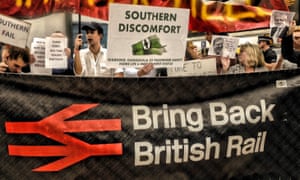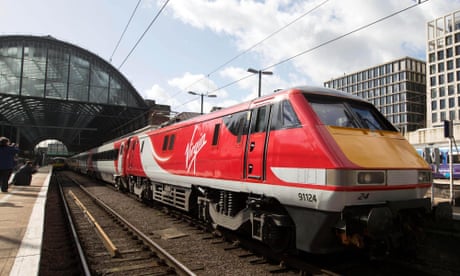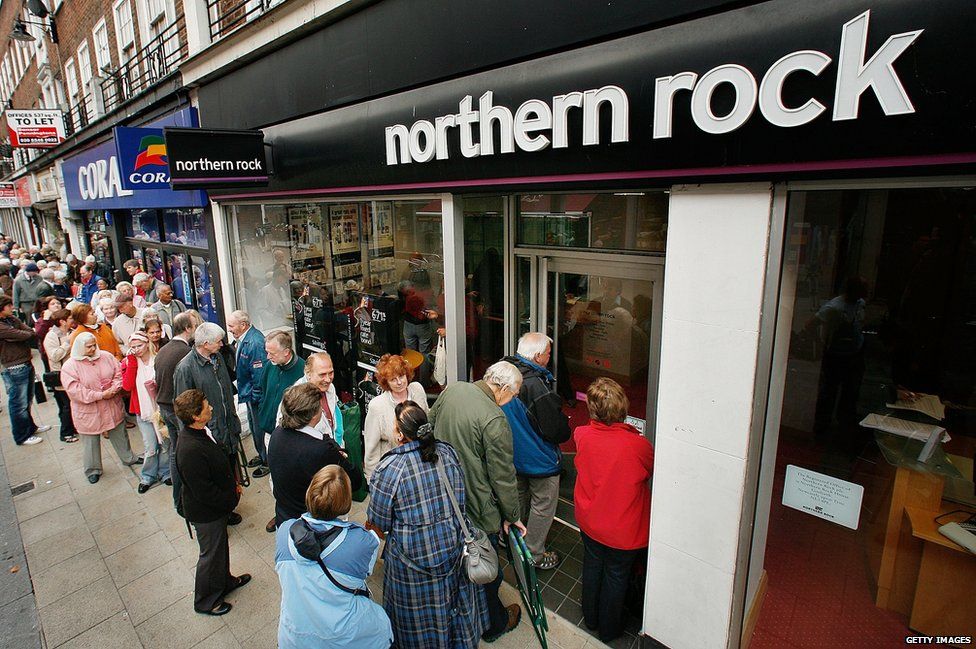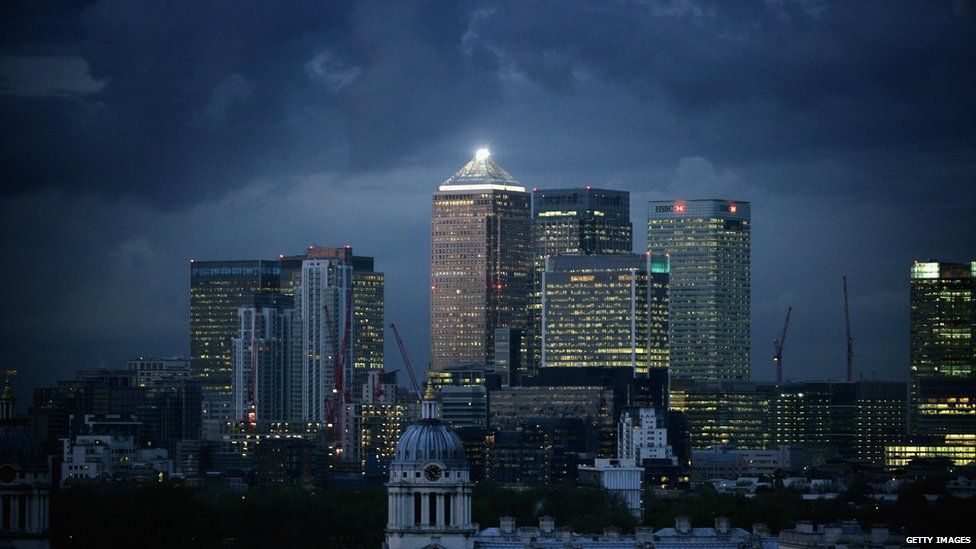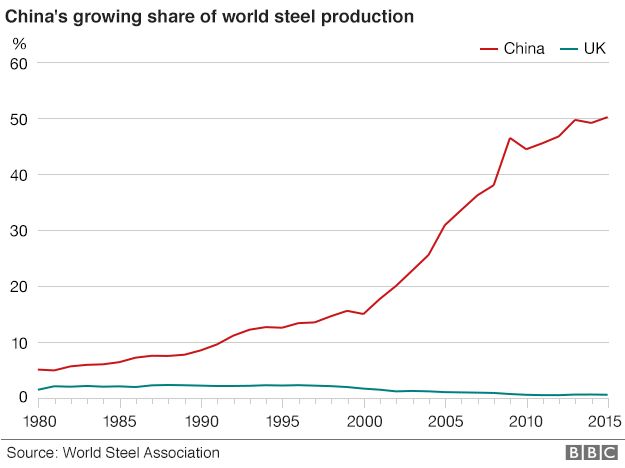Will Hutton in The Guardian
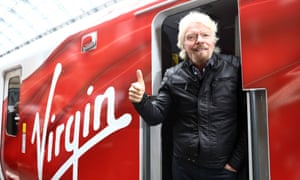
Public ownership is fashionable again. Turning over Britain’s public assets, lock, stock and barrel into private ownership and relying only on light-touch regulation to ensure they were managed to deliver a wider public interest was always a risky bet. And that bet has not paid off.
Recent polls show an astonishing 83% in favour of nationalising water, 77% in favour of electricity and gas and 76% in favour of rail. It is not just that this represents a general fall in trust in business. The privatised utilities are felt to be in a different category: they are public services. But there is a widespread view that demanding profit targets have overridden public service obligations. And the public is right.
Thames Water, under private equity ownership, has been the most egregious example, building up sky-high debts as it distributed excessive dividends to its private-equity owners via a holding company in Luxembourg, a move designed to minimise UK tax obligations. As the Cuttill report highlighted, at current rates of investment it will take Thames 357 years to renew the London’s water mains: it takes 10 years in Japan.
Equally, BT’s investment in universal national high-speed broadband coverage has been slow and inadequate, while few would argue that the first target of the rail operators has been quality passenger service – culminating in the most recent scandal of Stagecoach and Virgin escaping their contractual commitments. Most commuters, crowded into expensive trains, have become increasing fans of public ownership. Jeremy Corbyn’s commitment to renationalisation surprised everyone with its popularity.
The trouble is, it’s expensive: at least £170bn on most estimates. Of course the proposed increase in public debt by around 10% of GDP will be matched by the state owning assets of 10% of GDP, but British public accounting is not so rational. The emphasis will be on the debt, not the assets, and in any case there are better causes – infrastructure spending – for which to raise public debt levels.
And once owned publicly, the newly nationalised industries will once again be subject to the Treasury’s borrowing limits. If there are spending cuts, their capital investment programmes will be cut. What voters want is the best of both worlds. Public services run as public services, but with all the dynamism and autonomy of being in the private sector, not least being able to borrow for vital investment. It seems impossible, but building on the proposals of the Big Innovation Centre’s Purposeful Company Taskforce, there is a way to pull off these apparently irreconcilable objectives – and without spending any money.
The government should create a new category of company – the public benefit company (PBC) – which would write into its constitution that its purpose is the delivery of public benefit to which profit-making is subordinate. For instance, a water company’s purpose would be to deliver the best water as cheaply as possible and not siphon off excessive dividends through a tax haven. The next step would be to take a foundation share in each privatised utility as a condition of its licence to operate, requiring the utility to reincorporate as a public-benefit company.
Regulators, however good their intentions, too easily see the world from the view of the industry they regulate
The foundation share would give the government the right to appoint independent non-executive directors whose role would be see that the public interest purposes of the PBC were being discharged as promised.
This would include ensuring the company remained domiciled in the UK for tax purposes and guaranteeing that consumers, social and public benefit interests came first.
The non-executive directors would engage directly with consumer challenge groups whose mandate is to be a sounding board for consumer interests but at present are little more than talking shops, and deliver an independent report to an office of public services each year, giving an account of how the public interest was being achieved. It is important to have an independent third party: regulators, however good their intentions, too easily see the world from the view of the industry they regulate.
Because the companies would remain owned by private shareholders, their borrowing would not be classed as public debt. The existing shareholders in the utility would remain shareholders, and their rights to votes and dividends would remain unimpaired. So there would be no need to compensate them – no need, in short to pay £170bn buying the assets back. Indeed, the scope to borrow could be used to fund a wave of new investment in our utilities.
But the new company’s obligation would be to its users first and foremost, and would be free to borrow free from any Treasury constraint. Nor would any secretary of state get drawn into the operational running of the industries – one of the major reasons Attlee-style nationalisation failed. Inevitably decisions get politicised.
The aim would be to combine the best of both the public and private sectors. If companies do not deliver what they have promised, there should be a well-defined system of escalating penalties, starting with the right to sue companies and ending with taking all the assets into public ownership if a company persistently neglected its obligations. But the cost would be very much lower, because the share price would fall as it became clear it was operating illegally.
Britain would have created a new class of company. Indeed, there is the opportunity to start now. If Virgin and Stagecoach are unable to fulfil their contractual obligations on the East Coast line, the company should be reincorporated as a public benefit company. The shareholders would remain, but the newly constituted board would take every decision in the interests of the travelling public guaranteed by the independent directors, empowered consumer challenge groups and the office of public services – so that the taxpayer can trust her or his money is spent properly. Corbyn and John McDonnell have a way of delivering what the electorate want – and still keeping the industries off the public balance sheet. The circle can be squared.
Recent polls show an astonishing 83% in favour of nationalising water, 77% in favour of electricity and gas and 76% in favour of rail. It is not just that this represents a general fall in trust in business. The privatised utilities are felt to be in a different category: they are public services. But there is a widespread view that demanding profit targets have overridden public service obligations. And the public is right.
Thames Water, under private equity ownership, has been the most egregious example, building up sky-high debts as it distributed excessive dividends to its private-equity owners via a holding company in Luxembourg, a move designed to minimise UK tax obligations. As the Cuttill report highlighted, at current rates of investment it will take Thames 357 years to renew the London’s water mains: it takes 10 years in Japan.
Equally, BT’s investment in universal national high-speed broadband coverage has been slow and inadequate, while few would argue that the first target of the rail operators has been quality passenger service – culminating in the most recent scandal of Stagecoach and Virgin escaping their contractual commitments. Most commuters, crowded into expensive trains, have become increasing fans of public ownership. Jeremy Corbyn’s commitment to renationalisation surprised everyone with its popularity.
The trouble is, it’s expensive: at least £170bn on most estimates. Of course the proposed increase in public debt by around 10% of GDP will be matched by the state owning assets of 10% of GDP, but British public accounting is not so rational. The emphasis will be on the debt, not the assets, and in any case there are better causes – infrastructure spending – for which to raise public debt levels.
And once owned publicly, the newly nationalised industries will once again be subject to the Treasury’s borrowing limits. If there are spending cuts, their capital investment programmes will be cut. What voters want is the best of both worlds. Public services run as public services, but with all the dynamism and autonomy of being in the private sector, not least being able to borrow for vital investment. It seems impossible, but building on the proposals of the Big Innovation Centre’s Purposeful Company Taskforce, there is a way to pull off these apparently irreconcilable objectives – and without spending any money.
The government should create a new category of company – the public benefit company (PBC) – which would write into its constitution that its purpose is the delivery of public benefit to which profit-making is subordinate. For instance, a water company’s purpose would be to deliver the best water as cheaply as possible and not siphon off excessive dividends through a tax haven. The next step would be to take a foundation share in each privatised utility as a condition of its licence to operate, requiring the utility to reincorporate as a public-benefit company.
Regulators, however good their intentions, too easily see the world from the view of the industry they regulate
The foundation share would give the government the right to appoint independent non-executive directors whose role would be see that the public interest purposes of the PBC were being discharged as promised.
This would include ensuring the company remained domiciled in the UK for tax purposes and guaranteeing that consumers, social and public benefit interests came first.
The non-executive directors would engage directly with consumer challenge groups whose mandate is to be a sounding board for consumer interests but at present are little more than talking shops, and deliver an independent report to an office of public services each year, giving an account of how the public interest was being achieved. It is important to have an independent third party: regulators, however good their intentions, too easily see the world from the view of the industry they regulate.
Because the companies would remain owned by private shareholders, their borrowing would not be classed as public debt. The existing shareholders in the utility would remain shareholders, and their rights to votes and dividends would remain unimpaired. So there would be no need to compensate them – no need, in short to pay £170bn buying the assets back. Indeed, the scope to borrow could be used to fund a wave of new investment in our utilities.
But the new company’s obligation would be to its users first and foremost, and would be free to borrow free from any Treasury constraint. Nor would any secretary of state get drawn into the operational running of the industries – one of the major reasons Attlee-style nationalisation failed. Inevitably decisions get politicised.
The aim would be to combine the best of both the public and private sectors. If companies do not deliver what they have promised, there should be a well-defined system of escalating penalties, starting with the right to sue companies and ending with taking all the assets into public ownership if a company persistently neglected its obligations. But the cost would be very much lower, because the share price would fall as it became clear it was operating illegally.
Britain would have created a new class of company. Indeed, there is the opportunity to start now. If Virgin and Stagecoach are unable to fulfil their contractual obligations on the East Coast line, the company should be reincorporated as a public benefit company. The shareholders would remain, but the newly constituted board would take every decision in the interests of the travelling public guaranteed by the independent directors, empowered consumer challenge groups and the office of public services – so that the taxpayer can trust her or his money is spent properly. Corbyn and John McDonnell have a way of delivering what the electorate want – and still keeping the industries off the public balance sheet. The circle can be squared.

